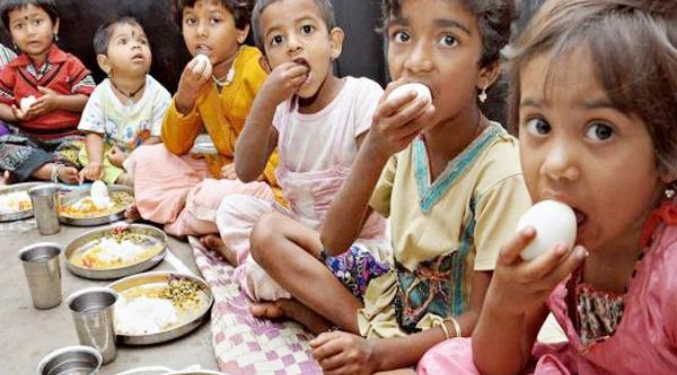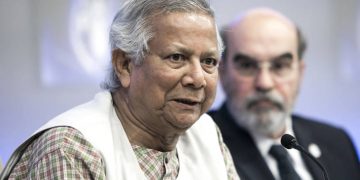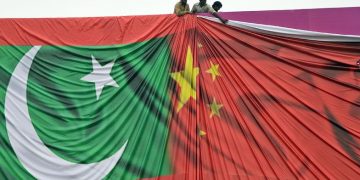Dr. S.N. Misra & Sanjaya Kumar Ghadai
In 1975, the national emergency ironically coincided with the launching of the biggest nutritional programme, the Integrated Child Development Scheme (ICDS), to mitigate undernourishment amongst children and expecting and lactating mothers, and achieving socio, economic and distributive justice for the most vulnerable sections of society. From its fledgling footprints, the programme now covers around 8 crore children and 1.9 crore pregnant and expecting mothers which are serviced by 14 lakh Anganwadi centres and 22 lakh workers. Of the six services to be provided by the Anganwadi centres, like immunisation, health check-up, pre-schooling, Supplementary Nutrition Programme (SNP) is the most important one.
SNP is expected to bring down the high level of Infant Mortality Rate (44 per 1000) and Maternal Mortality Rate which is around 171 per lakh as per the Human Development Report 2020. For most developed economies, IMR and MMR are less than 10! As per our Constitution, one of the primary duties of the state is to ‘raise the level of nutrition (Article 47), take initiatives for early childhood care (Article 45). In 1976, a Constitutional Amendment was made to ensure that “children are given opportunity to develop in a healthy manner” (Article 39(f)).
Anganwadi centres had generally been receiving a step-motherly attitude from state governments, with very poor scales of nutrition, improper accommodation, non-availability of drinking water and poorly trained and paid Anganwadi workers. Thanks to an indictment from the Supreme Court on April 22, 2009, revised guidelines have been issued regarding supplementary nutrition to be provided to children. Five hundred calories and 12-15gms of protein are to be provided to children in the age group of 3-6. For the severely undernourished, the scale is 800 calories and 22-25gms of protein. In respect of expecting and nourishing mothers the scales are 600 calories with a protein intake of 18-20gms. As per the NFHS-4 Survey (2015), close to 21 per cent of India’s population suffers from wasting and around 25.5 million children are wasted. India, in fact, leads globally in terms of wasting where only 20 countries have a wasting percentage of more than 10 per cent. The SNP has achieved a reduction of 9.6 per cent in stunting, 6.7 per cent in under-nutrition and 10.8 per cent in anaemia during 2006-2016. However, the most disturbing trend has been an increase in wasting from 19.8 per cent in 2005 to 21 per cent in 2015. The government introduced Pradhan Mantri Matru Vandana Yojana in 2017 which seeks to make milestone based cash transfer to pregnant and nursing mothers who are above 19 years of age for the first child. However, studies by economists Jean Dreze and Reetika Khera bring out that most expecting mothers are unable to avail of full benefit of the scheme due to its procedural complexity and apathetic attitude of implementing agencies.
The Poshan Abhiyaan in collaboration with the World Bank is a new programme launched in December, 2017 as a National Nutrition Mission with the prime objective of reducing the rate of stunting and wasting by 2 per cent per year as against 1 per cent earlier and most importantly reduce anaemia amongst adolescent girls by 3 per cent as against only 0.8 per cent per year, and low birth weight by 3 per cent as against 0.8 per cent presently. Severe anaemia and health deficiency amongst adolescent girls was also highlighted by Unicef-sponsored survey in RSOC (2013), as a major concern in India. The Poshan Abhiyaan plans to mobilise the community and usher in behavioural change as an important component for the mission.
Covid-19 has exposed the underbelly of the Central and state governments’ under-preparedness in handling the problem of migrant workers, who were on the streets. While a slew of interventions have been announced to stem the problem of ration supply for migrants, there is very little discussion as to how SNP and Poshan Abhiyaan will be implemented.
In Odisha, around 41.4 per cent women in the age group of 15-49 are reported to be below BMI and 36 per cent of babies under 6 months are underweight. They are higher than the all-India average. The wasting percentage is also higher than the all-India average (23.7 per cent). Prof. Partha Sarathi Dasgupta, the famous economist in his book “An Enquiry into Well-being & Destitution” (1993) brings out how protein intake is most important for brain development in the first three years of life, during which the brain achieves 90 per cent of its full size. All studies show, protein and iron deficiency amongst children of poor and expecting mothers and adolescent girls in India is a major challenge. Poor intake of micronutrients and vitamins is rampant. Given such humongous challenges, SNP is a critical cog in the wheel of India’s healthcare. It is reported that some effort is being made to provide take-home ration to children. However, the critical component of providing hot cooked meal to children and expecting mothers has taken a serious beating. While migrants are being provided with cooked meal at different centres, no such arrangements are being made for undernourished children and mothers.
Since the impact of Covid is likely to continue at least till the end of this year, the central and state governments must come up with a credible action plan for providing supplementary nutrition in an organised manner. India already has the dubious distinction of moving up in the global hunger index from 102 to 117. It is time technological platforms and community partnerships as envisaged in the Poshan Abhiyaan are put in place. The WHO has observed that one of the biggest bottlenecks in India’s social sector programmes is a lack of horizontal coordination between different ministries running them, with the bureaucracy taking a vertical approach. It’s time the government associates responsible NGOs to get closely involved in running SNP, and use technology effectively to improve communication and skill development amongst Anganwadi workers and ASHAs. India’s expectation to reap demographic dividend would otherwise be a recipe for disaster in post-Covid period. Poor children and mothers with fragile health do not need our charity, but proper nutritional care and empathy, which are constitutionally guaranteed to them.
Prof. S.N. Misra teaches Economics & Sanjaya Kumar Ghadai, is a Ph.D. research scholar.






































